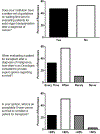Preexisting melanoma and hematological malignancies, prognosis, and timing to solid organ transplantation: A consensus expert opinion statement
- PMID: 32976703
- PMCID: PMC8555431
- DOI: 10.1111/ajt.16324
Preexisting melanoma and hematological malignancies, prognosis, and timing to solid organ transplantation: A consensus expert opinion statement
Abstract
Patients undergoing evaluation for solid organ transplantation (SOT) frequently have a history of malignancy. Only patients with treated cancer are considered for SOT but the benefits of transplantation need to be balanced against the risk of tumor recurrence, taking into consideration the potential effects of immunosuppression. Prior guidelines on timing to transplant in patients with a prior treated malignancy do not account for current staging, disease biology, or advances in cancer treatments. To update these recommendations, the American Society of Transplantation (AST) facilitated a consensus workshop to comprehensively review contemporary literature regarding cancer therapies, cancer stage specific prognosis, the kinetics of cancer recurrence, as well as the limited data on the effects of immunosuppression on cancer-specific outcomes. This document contains prognosis, treatment, and transplant recommendations for melanoma and hematological malignancies. Given the limited data regarding the risk of cancer recurrence in transplant recipients, the goal of the AST-sponsored conference and the consensus documents produced are to provide expert opinion recommendations that help in the evaluation of patients with a history of a pretransplant malignancy for transplant candidacy.
Keywords: cancer/malignancy/neoplasia; clinical research/practice; editorial/personal viewpoint; organ transplantation in general; patient safety; recipient selection.
© 2020 The American Society of Transplantation and the American Society of Transplant Surgeons.
Comment in
-
Balancing uncertain risks in candidates for solid organ transplantation with a history of malignancy: Who is safe to transplant?Am J Transplant. 2021 Feb;21(2):447-448. doi: 10.1111/ajt.16366. Epub 2020 Nov 10. Am J Transplant. 2021. PMID: 33084186 No abstract available.
References
-
- Kasiske BL, Cangro CB, Hariharan S, et al. The evaluation of renal transplantation candidates: clinical practice guidelines. Am J Transplant. 2001;1 Suppl 2:3–95. - PubMed
-
- Brattstrom C, Granath F, Edgren G, Smedby KE, Wilczek HE. Overall and cause-specific mortality in transplant recipients with a pretransplantation cancer history. Transplantation. 2013;96(3):297–305. - PubMed
-
- United States Renal Data System. 2019 USRDS Annual Data Report: Epidemiology of kidney disease in the United States. National Institutes of Health, National Institute of Diabetes and Digestive and Kidney Diseases, Bethesda, MD. 2019.
Publication types
MeSH terms
Grants and funding
LinkOut - more resources
Full Text Sources
Medical


